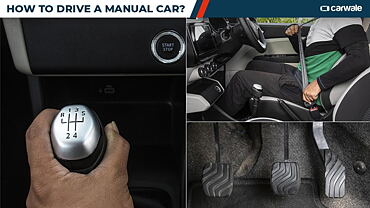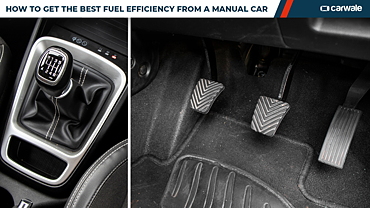With the European and American economies still in doldrums and the BRIC markets gaining importance by the day, most manufacturers are busy formulating a gameplan of harvesting a ripe crop. Some manufacturers have already cast the die while Nissan believes its subbrand, Datsun, holds the key for its successful future, particularly in India. The question is why is Nissan interested in a brandthat doesn't have much recall in the Indian buying public's psyche?
But, before we answer that here's a little lowdown on what this brand stood for in the past. In the 50s when Nissan was aimingto dominate the American market by launching an affordable car, it was worried that if the car bombed it would ruin Nissan's brand name. Hence it took cover under the Datsun brand. However, the brand grew in popularity because of the 'Z' cars. So much so that it gave Nissan the confi dence to begin selling cars in these markets under its own brand name. Eventually, this lead to the demise of the Datsun brand.
Now though Nissan is falling back on Datsun for a repeat performance. Datsun even today will stand for affordable motoring and the disconnect with Nissan would mean it can sell bare basic cars without affecting the Japanese car maker's reputation. In India Datsun will begin its innings with affordable hatchbacks positioned below the Micra. These would offer lesser equipment and would have lower levels of fi t and fi nish to achieve stiff cost targets.

The S211 was launched in 1959. tt was based on the earlier 310 and featured a fiberglass reinforced plastic body. It could seat four and had top speed of 100kmph. It was powered by 34 bhp, 988cc engine. The design thouogh seems to have taken inspiration fronm Austin Healeys.

A host of Z variants were made in the beginning. Seen here is t he Z 432 w h i ch pack ed in a 160bhp S20 engine from the Skyline GT-R. This was the motor which gave the Z a reputation for performance. The Z432 feature d 4-valves per cylinder, 3 carburetors and 2camshafts. Around 420 of these were built.

Also known as the SR311, these cars were regarded as clones of British roadsters. However it is these cars which cemented the fearsome reputation that Datsuns were bullet proof. The SR311 was launched as the 1600 and the 2000. These were powered by Austin engines which were heavily modded to produce around 120bhp and mated to 5-speed manual boxes.

The Maxima began life in 1976 as the Datsun 810. However in 1982, the company dropped the 810 nomenclature and stuck to the Maxima brand name as it had caught on. The Maxima was available as a 4-door sedan and also as a station wagon. It also offered auto transmissions along with a choice of both petrol and diesel engines.

The Z31 chassis was first introduced in 1983 as a Datsun 300ZX and remained in production till 1989. A total of 329,900 had been produced by then. They had a choice of 2.0- and 3.0-litre engines.
All about What's in a name, 'Fact.
The Datsun brand was born in the early 1900s. It was the brain child of Masujiro Hasimoto, an Amercian trained engineer who always dreamt of buliding Japan's first production automobile. He later created Kwaishinsha Motors with the help of three partners.
The company first launched Type 31 and followed it up with the DAT model 31. This was also the beginning of the Datsun name as Kwaishinsha Motors was rechristenedDAT Motorcar Co, DAT being the initials of the three partners.
When DAT Motorcar Co wanted to launch a new car a few years later, it chose to call it the 'Datson'. Datson was to indicate its smaller size when compared to the existing, larger DAT car.
Later, in 1933 after Nissan took control of DAT Motorcar Co, the last syllable of Datson was changed to 'sun' because 'son' also means 'loss' in Japanese. The sun added to the benefit of Nissan's renaming strategy as the sun is depicted in the Japanese national flag and is something which demands respect in Japanese culture.

The 240Z might look like a delicate darling, but it sure does have an illustrious motorsport pedigree. It participated in many rallies and wherever it went, it wrecked havoc, be it the RAC rally or Monte Carlo. It had an Indian connection too. Shekhar Mehta of Indian descent and arguably the most successful driver in the history of the East African Safari Rally won the event five times in a Datsun. However, he had gotten his chance to drive a Datsun when another Indian Joginder Singh moved to drive Fords.

The 510 was an instant hit thanks to its performance. Interchangeable parts with much larger Datsuns added to its popularity.

Many would recollect seeing this 4wd metal monster on Indian roads. Some might also know it as the Jongawhich was the pride of the Indian Army for a number of years. However, the Jonga, also sold as the Nissan Patrol was badged as the Datsun in some markets. It was manufactured between 1960 and 1980. A variety of body styles including 3-door soft top, hard top and station wagon were available. The 4wd Nissan Patrol 60 series was produced in short, medium and long wheelbase versions. Under the bonnet resided a massive petrol guzzling 4.0-litre engine which offered phenomenal performance for a hulk like this. It had a 3-speed manual transmission in the beginning followed by an upgraded 4-speed manual. It also got a two-speed transfer case with part time 4wd. Even today if you searched hard enough, you may probably find a few specimens in India.

The 240Z was the first generation of Z GT two-seat coupes. It had independent suspension all round with MacPherson struts up front and Chapman struts at the back. Front disc brakes were standard across all models as well. Thanks to its low price as compared to other British and German marques it became popular in the United States and was a major success for Datsun

The 1200 was available in pickup truck form as the B120. It is perhaps the first time that a regular car morphed into a pickup. In some ways this was the origin of the 'ute', something that could take animals to the farm on weekdays and was also suitable for families on weekends. Utes today are the most popu lar vehicles in countries like Australia





